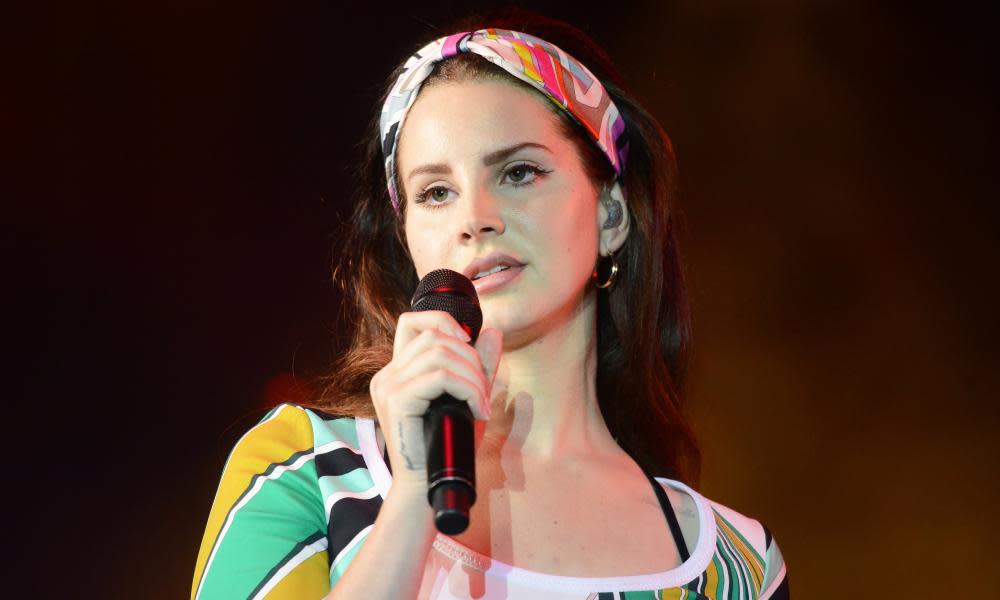Lana Del Rey: Lust for Life review – topical tunes and retro bombs

Most pop stars innovate every album cycle, a fraught hustle that is of a piece with this era’s frantic audio production values. That’s all beneath Lana Del Rey.
The ageless 32-year-old arrived at a languid sound, a detached authorial voice and a set of obsessions on her 2012 debut Born to Die, and her fourth album remains true to them all. One fine track sums up her entire oeuvre: the title of Summer Bummer reflects the consistently high mercury of Del Rey’s mises-en-scène; and there is usually a worm at the centre of her perfect peach. The rhyme reflects the way all this glossy nihilism is often delivered with a wink.
At least three departures separate Lust for Life from its predecessors. One is the over-abundance of guests, a concession to modernity. The usual attendant menfolk – rappers A$AP Rocky and Playboi Carti – lend notional grit to Del Rey’s ultra-glide. You might want to punch the air, however, when Stevie Nicks turns up on Beautiful People, Beautiful Problems – Nicks’s even, level delivery is so obviously a precursor to Del Rey’s own. The title is almost self-parody; the rest, however, goes deeper than Del Rey songs usually do, combining a fetish for muscular blue-collar men with eco-fear.
It’s not the only instance. A number of songs here step outside Del Rey’s favourite theme – wrongness, gilded – and tackle the non-solipsistic. The second departure is that this is an album about America today. God Bless America – and All the Beautiful Women in It wears its title like a pussy hat; gunshots punctuate the chorus.
The ghostly When the World Was at War We Kept Dancing invokes the 1940s while wondering: “Is it the end of an era? Is it the end of America?” Del Rey surveys the crowd at Coachella and worries about their children, their children’s children. “I said a prayer for the third time,” she sighs. And we know what Del Rey’s prayers are like nowadays – in February she encouraged Twitter followers to join a nationwide congregation of witches to put a spell on the US president.
If this is an album about America, it is also an album about Americana, and other venerable source materials: the Coachella song is subtitled Woodstock in My Mind. Despite the rappers, the hip-hop content in Del Rey’s sound mostly gives way to canonical genres – the third departure.
Millennials might find a subscription to Uncut or Mojo useful here, as Del Rey drops retro bombs all over the place. “Don’t worry baby,” she croons on Love (Beach Boys). “My boyfriend’s back,” she notes on Lust for Life (the Angels), her strangely unsatisfying hook-up with the Weeknd, which borrows from Iggy Pop. It all gets a little ridiculous when Sean Ono Lennon consents to a Beatles pastiche called Tomorrow Never Came crammed with wide-ranging interpolations. “Lay lady lay,” Del Rey sings, “I would be your tiny dancer.” It’s a mark of Lana Del Rey’s persuasive skill that a good song emerges from under all that baggage. Girl meets boy. Boy fails to turn up when he said he would. Love goes wrong. Repeat till fade.

 Yahoo News
Yahoo News 
